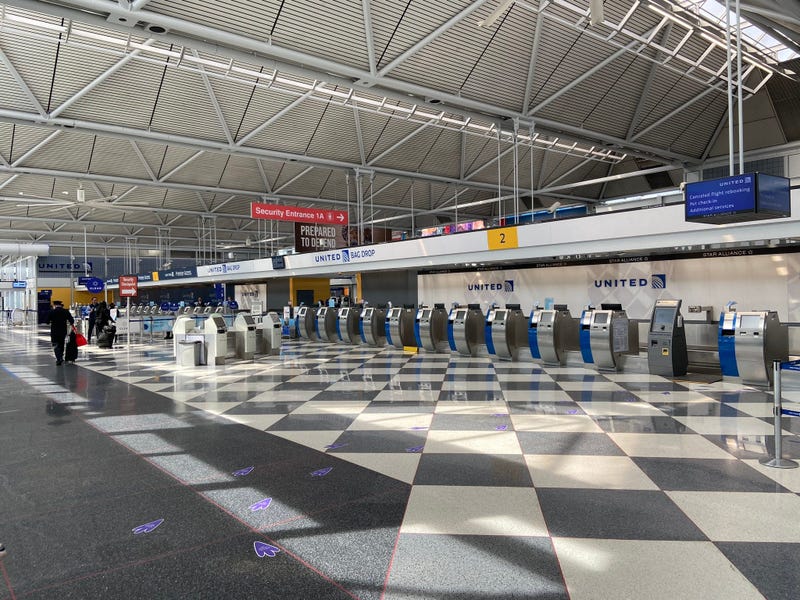
CHICAGO (WBBM NEWSRADIO) -- Two more states were added Tuesday to Chicago's mandatory travel quarantine order.
Beginning Friday, anyone traveling to Chicago from Iowa or Oklahoma will have to self-quarantine for 14 days. The city said it will update the list of affected states every Tuesday - adding or removing states depending on the latest data, and will go in effect the following Friday.
The order applies to Chicago only - not the rest of the state.
RELATED: How To Navigate Chicago's Travel Alert
The travel order covers visitors to Chicago, as well as residents, and has exceptions for people doing essential travel, such as, government or military work, medical work, or shared parental custody; as well as those who don't stay in a hotspot for more than 24 hours. The order does not affect travelers at the city's airports who land here to connect with a flight or people driving through the state.
Individuals subject to the self-quarantine order face fines of $100 to $500 per day, up to $7,000 for violations, the city said. The order is in effect until further notice, officials said.
Chicago Department of Public Health Commissioner Dr. Allison Arwady said earlier this month that the city's new emergency travel order is more about people doing what they can to help stop the spread of COVID-19 rather than legal enforcement.
Dr. Arwady said the city won't be tracking every traveler coming into the state, but wants people to do the right thing and watch out for the Chicago community.
"We do not have a plan, for example, to look for out-of-state license plates to pull people over; we do not have a plan to create a list of individuals who are traveling and try to track them down," Dr. Arwady said. "Our goal is, first of all, to get this message out strongly, that's the most important thing."You can read the full emergency travel order and find frequently asked questions about the order on the Chicago Department of Public Health website.
